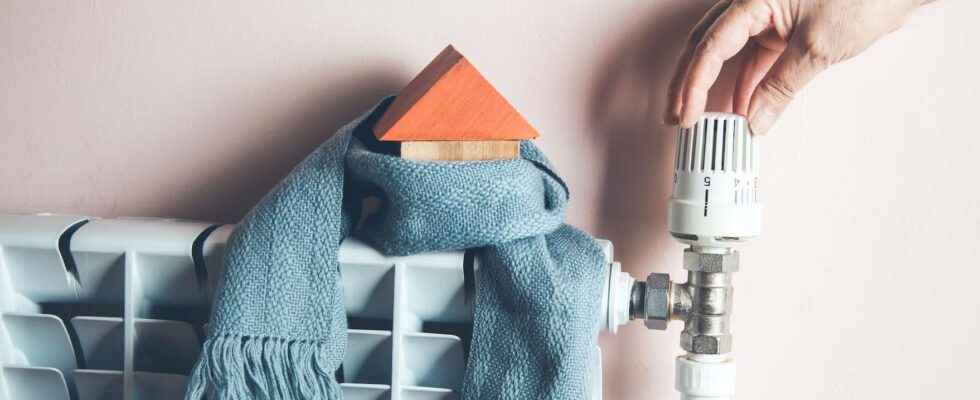French households spent an average of 1,696 euros to heat their homes in 2019, according to the Effy site, which specializes in energy renovation. However, two thirds of French people are cold at home when the heating is on! A paradox often linked to bad practices.
You will also be interested
Heating represents 66% of the energy consumption of a household, an average expenditure of 1,696 euros, in 2019, according to the site Effy. Despite this, many French people feel cold at home. A shame! Out of habit or convenience, we unwittingly adopt counterproductive actions, such as caulking our windows or warming up quickly with an auxiliary heater. These eight errors generate a waste ofenergy and can even put you in danger.
Heating your house: keep your curtains and shutters closed
Windows represent 10% to 15% of the loss of heat in accommodation. To heat his house and avoid the currents ofair cold, it is tempting to keep curtains and shutters closed all day. Bad idea: it does not plug leaks and prevents the Sun to warm the room. If your window is a real energy strainer, the only effective solution is to replace it.
Do not open the window
Even when it’s freezing outside, remember to open the window 10 minutes a day (the walls will not have time to cool down). An apartment needs to be ventilated regularly to renew the ambient air and eliminate indoor pollutants. Aeration also wicks away moisture, which promotes bad odors, dust mites and mold. In addition, dry air requires less energy to be heated.
Turn on the radiator fully when you get in
Okay, turning down the heat when you’re not at home reduces your heating bill. But turn the radiator maximum when you get home will not heat the house faster, and this generates overconsumption of electricity. In practice, do not lower the temperature below 15 ° C when you are away for the day. If you want a warm room when you arrive, invest in a thermostat programmable and start heating half an hour before your arrival.
Heat the house evenly
Each room has its comfort temperature : 19 ° C for living rooms (living room, office, dining room, kitchen, etc.), 16 ° C to 18 ° C in the bedroom, 22 ° C in the bathroom (when ‘uses). Better to keep a constant temperature rather than spending your time adjusting the heating based on occupancy. In the event of a prolonged absence, lower the thermostat to 12 ° C but do not turn off the heating completely, otherwise the water may freeze in the pipes.
Heat a room with an auxiliary heater
A small heater mobile troubleshoots to quickly heat a room, but it is not intended to be used as a main heating and operate continuously. Fan heaters consume much more energy than gas heaters. inertia which can store heat. In addition, they dry out the air, which irritates the respiratory tract and eyes. Worse, the heaters combustion like stoves oil or to drink present risks ofcarbon monoxide poisoning. Never leave on unattended!
Clutter up radiators
The radiators must be well cleared to diffuse the heat as well as possible. Avoid placing furniture right in front or hanging clothes to dry on it: instead, place a clothes rack next to it and your clothes will dry just as quickly. On the other hand, a radiator placed in front of a cold wall, poorly insulated, will lose a lot of heat. via this wall. In this case, place a reflector panel consisting of a layer aluminum and an insulating layer behind. Finally, remember to dust your radiators regularly.
Neglecting insulation
A well-insulated house is the BABA to save money and heat your house. A cold wall “sucks” heat from the body and increases the feeling of discomfort. For an ambient temperature of 20 ° C, a wall at 14 ° C thus offers a feeling of 17 ° C, while a wall at 19 ° C offers a feeling of 19.5 ° C. Start by insulating the roof and the walls, the first two sources of heat loss. There are many financial aid (tax credit, reduced rate of VAT, zero-rate eco-loan, exemption from property tax, etc.) to undertake construction work.insulation or replace its windows.
Forget about maintaining your boiler
A maintenance visit annual is compulsory for appliances with a power between 4 and 400 kW (wood-fired boilers, coal, gas, fuel oil). An essential inspection because a poorly maintained boiler presents a risk of intoxication carbon monoxide. Regular maintenance of the boiler also reduces the amount of combustible consumes.
Interested in what you just read?
.
fs10
